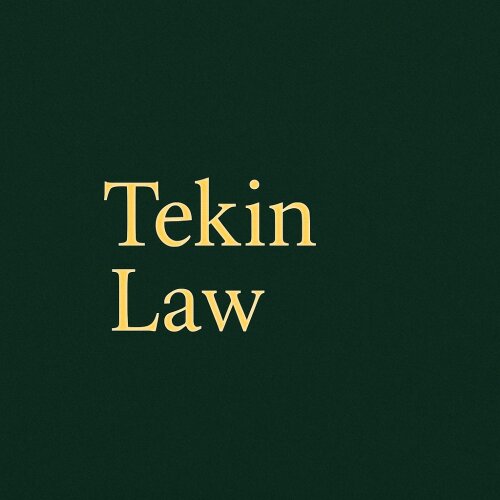Best Landlord & Tenant Lawyers in Istanbul
Share your needs with us, get contacted by law firms.
Free. Takes 2 min.
Free Guide to Hiring a Real Estate Lawyer
List of the best lawyers in Istanbul, Turkey
Legal guides written by Tekin Law Firm:
- Arbitration in Turkey
About Landlord & Tenant Law in Istanbul, Turkey
The relationship between landlords and tenants in Istanbul is governed by the Turkish Civil Code and the Law on Real Estate Rent. These laws establish rights and obligations for both parties, setting a standard for agreements around matters such as rent payment, lease termination, eviction, property maintenance, and dispute resolution. Landlord-tenant relationships in Turkey also cater for individuals who lease residential properties or commercial properties
Why You May Need a Lawyer
There are several situations in which the services of a lawyer might be beneficial for either a tenant or a landlord. Examples include the drafting or reviewing a lease agreement, handling eviction procedures, property damages, suing for unpaid rent, or for defense against alleged infractions of local housing codes. Tenants may seek legal assistance when facing eviction, discrimination or when the landlord fails to maintain the rented property. A lawyer can also be essential in navigating the intricacies of Istanbul’s local laws and regulations
Local Laws Overview
Istanbul's landlord and tenant laws are embedded in the Turkish Civil Code, with additional provisions in the Law on Real Estate Rent. The law stipulates that rental agreements must be in writing and notarized. The rent amount is agreed upon by both parties but cannot significantly exceed local average rental prices. Rent increases, however, should only be made considering inflation rates. The landlord has a legal obligation to repair and maintain the rental property, and both parties have the right to terminate the contract, but the reasons must be in adherence with stipulated legal circumstances.
Frequently Asked Questions
1. Can a tenant in Istanbul withhold rent if repairs aren't made?
According to Istanbul's Landlord & Tenant law, a tenant has the right to carry out required repairs and subtract the repair cost from the rent if the landlord fails to fulfill their maintenance obligations. However, you should consult with a lawyer as each case may vary.
2. What is the procedure for eviction in Istanbul?
Eviction can only take place under legally specified circumstances, such as non-payment of rent, or misuse of property. It is recommended to involve a lawyer in the process to ensure it is properly executed in accordance with the law.
3. How much notice must a landlord give before increasing rent?
As per Istanbul's laws, a landlord should provide at least one month's notice of a rent increment, tying it to the rate of inflation.
4. Can the landlord visit the property anytime they want?
While landlords have a right to inspect their property, this must be done at reasonable intervals and with prior notice to the tenant, ensuring the tenants' right to privacy.
5. What are a tenant's rights if the rented property is sold?
A tenant’s lease agreement remains valid even if the property is sold. The new landlord must honor the existing tenant's lease until it ends.
Additional Resources
Additional resources that can be consulted for more information include the Housing Development Administration of Turkey (TOKI), Ministry of Environment and Urbanization, and local tenant rights associations. Legal advice can also be sought from local law firms specializing in landlord and tenant law.
Next Steps
If you need legal assistance in landlord & tenant matters in Istanbul, contact a reputable local lawyer specializing in the field. It may also be beneficial to gather relevant documentation such as rental agreements, receipts, and any correspondence related with your landlord or tenant for ease of consultation and case examination.
Lawzana helps you find the best lawyers and law firms in Istanbul through a curated and pre-screened list of qualified legal professionals. Our platform offers rankings and detailed profiles of attorneys and law firms, allowing you to compare based on practice areas, including Landlord & Tenant, experience, and client feedback.
Each profile includes a description of the firm's areas of practice, client reviews, team members and partners, year of establishment, spoken languages, office locations, contact information, social media presence, and any published articles or resources. Most firms on our platform speak English and are experienced in both local and international legal matters.
Get a quote from top-rated law firms in Istanbul, Turkey — quickly, securely, and without unnecessary hassle.
Disclaimer:
The information provided on this page is for general informational purposes only and does not constitute legal advice. While we strive to ensure the accuracy and relevance of the content, legal information may change over time, and interpretations of the law can vary. You should always consult with a qualified legal professional for advice specific to your situation.
We disclaim all liability for actions taken or not taken based on the content of this page. If you believe any information is incorrect or outdated, please contact us, and we will review and update it where appropriate.

















